Professor Marko Milanovic - 'Revisiting Coercion as an Element of Prohibited Intervention in International Law'
 International law prohibits states from intervening in the internal and external affairs of other states, but only if the method of intervention is coercive. We know coercion when we see it – for example when Russia threatened Ukraine with military action, a threat which it later fulfilled, demanding ‘legal guarantees’ that NATO would not expand eastwards nor place weapons systems on Ukrainian soil. But what is coercion really beyond the obvious examples most lawyers would agree on? And how is to be understood in the novel context of malicious cyber operations, for instance those interfering with elections or attacking public health infrastructure in other states?
International law prohibits states from intervening in the internal and external affairs of other states, but only if the method of intervention is coercive. We know coercion when we see it – for example when Russia threatened Ukraine with military action, a threat which it later fulfilled, demanding ‘legal guarantees’ that NATO would not expand eastwards nor place weapons systems on Ukrainian soil. But what is coercion really beyond the obvious examples most lawyers would agree on? And how is to be understood in the novel context of malicious cyber operations, for instance those interfering with elections or attacking public health infrastructure in other states?
Follow the link below to listen to Marko’s lecture delivered on Wednesday 22nd February 2023.
Revisiting Coercion as an Element of Prohibited Intervention in International Law
Doreen Lustig - 'Veiled Power: International Law and the Private Corporation'
This episode of the GLAR podcast features a video presentation by Dr Doreen Lustig (Tel Aviv University), entitled ‘Veiled Power: International Law and the Private Corporation’. The seminar was chaired by Professor David Bilchitz, and took place on 24 February 2021. It was the fifth seminar in the 2020-21 Ghandhi Research Seminar Series.
GLAR - Dr Celine Tan (University of Warwick) - 'Audit as Accountability'
This episode features a video presentation by Dr Celine Tan (University of Warwick), entitled ‘Audit as Accountability: Technical Authority and Expertise in the Governance of Private Financing for Development’. The seminar was chaired by Dr Bolanle Adebola and took place on 3 February 2021. It was the fourth seminar in the 2020-21 Ghandhi Research Seminar Series.
Intersectional Discrimination
This episode features a video presentation by Dr Shreya Atrey (University of Oxford), entitled ‘Intersectional Discrimination’. The seminar was chaired by Dr Nora Honkala and took place on 25 November 2020. It was the third seminar in the 2020-21 Ghandhi Research Seminar Series.
Posthuman International Law and the Rights of Nature
This episode features a video presentation by Dr Emily Jones (University of Essex), entitled ‘Posthuman International Law and the Rights of Nature’. The seminar was chaired by Dr Marie Aronsson-Storrier, and took place on 11 November 2020. It was the second seminar in the 2020-21 Ghandhi Research Seminar Series.
Hope and international law
This episode of the GLAR podcast features a presentation by (podcast host) Professor James A. Green.
James was invited to give the opening keynote address at the 3rd Postgraduate Conference in International Law and Human Rights, hosted by the International Law and Human Rights Unit at the University of Liverpool (17-18 June 2019). His address (although not the following Q&A) was recorded and appears here as a podcast with the kind permission of the conference’s organising committee.
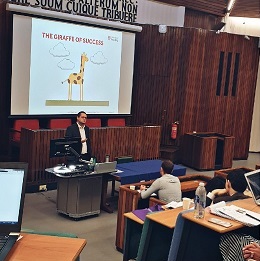
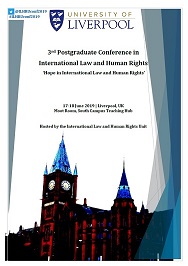 The theme of the conference was ‘Hope in International Law and Human Rights’, and so James’ presentation explored this theme, providing some overarching thoughts on the concept of ‘hope’ in the context of international law. As one would expect, he spoke quite a lot about giraffes. The PowerPoint slides for the presentation can be found .
The theme of the conference was ‘Hope in International Law and Human Rights’, and so James’ presentation explored this theme, providing some overarching thoughts on the concept of ‘hope’ in the context of international law. As one would expect, he spoke quite a lot about giraffes. The PowerPoint slides for the presentation can be found .
The University of Liverpool’s Postgraduate Conference in International Law and Human Rights is establishing itself as an important forum for postgraduates in the field to present and discuss their work. The programme for the 3rd Conference can be found , and the conference can be found/followed on Twitter (@ILHRUconf2019 / #ILHRUconf2019). James would like to thank the conference organising committee (Jasmin Johurun Nessa, Sinead Coakley and Dr Ben Murphy) and everyone at Liverpool.
Listen The GLAR Podcast – Episode 35
LGBT+ asylum seekers (part 2)
Part 2 of 2 podcasts focused on the Contemporary Challenges Facing LGBT+ Asylum Seekers: UK and Global Perspectives conference, which was held on 1 May 2019 at the University of Reading, School of Law. The conference as a whole was hosted by the Migration & Asylum Section of the Society of Legal Scholars under the auspices of GLAR, and it was sponsored by the Society of Legal Scholars and by the Honourable Society of the Inner Temple.
The programme for the event can be found .
This podcast is the second of the two panels from the conference, which was focused on Global Perspectives. It featured four speakers, and was chaired by Dr Ana Beduschi (University of Exeter).
Part 1, which features the first panel, on UK Perspectives, is available below.
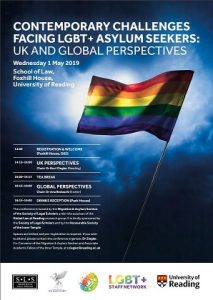
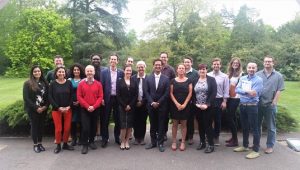 ***If you enjoyed this podcast, listeners may be interested to hear more recent podcast (published by the Kaldor Centre for International Refugee Law, University of New South Wales), featuring an event at the Centre entitled Sexual Orientation, Gender Identity and Asylum – Australian and Global Perspectives (12 December 2019), which GLAR’s Dr Ruvi Zielger participated in.***
***If you enjoyed this podcast, listeners may be interested to hear more recent podcast (published by the Kaldor Centre for International Refugee Law, University of New South Wales), featuring an event at the Centre entitled Sexual Orientation, Gender Identity and Asylum – Australian and Global Perspectives (12 December 2019), which GLAR’s Dr Ruvi Zielger participated in.***
Listen The GLAR Podcast – Episode 34
LGBT+ asylum seekers (part 1)
Part 1 of 2 podcasts focused on the Contemporary Challenges Facing LGBT+ Asylum Seekers: UK and Global Perspectives conference, which was held on 1 May 2019 at the University of Reading, School of Law. The conference as a whole was hosted by the Migration & Asylum Section of the Society of Legal Scholars under the auspices of GLAR, and it was sponsored by the Society of Legal Scholars and by the Honourable Society of the Inner Temple. The programme for the event can be found .
This podcast is the first panel from the conference, which was focused on UK Perspectives. It features three speakers, and was chaired by Dr Ruvi Ziegler (University of Reading), who also was the organiser of the conference.
Part 2, which features the second panel, on Global Perspectives, is available here.

 ***If you enjoyed this podcast, listeners may be interested to hear more recent podcast (published by the Kaldor Centre for International Refugee Law, University of New South Wales), featuring an event at the Centre entitled Sexual Orientation, Gender Identity and Asylum – Australian and Global Perspectives (12 December 2019), which GLAR’s Dr Ruvi Zielger participated in.***
***If you enjoyed this podcast, listeners may be interested to hear more recent podcast (published by the Kaldor Centre for International Refugee Law, University of New South Wales), featuring an event at the Centre entitled Sexual Orientation, Gender Identity and Asylum – Australian and Global Perspectives (12 December 2019), which GLAR’s Dr Ruvi Zielger participated in.***
Listen The GLAR Podcast – Episode 33
Hybrid warfare, cyber & lawfare
This episode of the GLAR podcast features a presentation by Dr Sascha Dov Bachmann (Associate Professor in Law, Bournemouth University; Extraordinary Associate Professor in War Studies at FHS, Stockholm; Research Fellow, CEMIS, Faculty Military Science, Stellenbosch University) entitled Hybrid Warfare, Cyber & Lawfare: The Daily Reality of 21st Century Hybrid Conflict. The session took place at Foxhill House, the School of Law at the University of Reading, on 24 April 2019, and was chaired by Matthew Windsor. It was part of the .
Dr Bachmann has kindly agreed to share his PowerPoint slides from the presentation to accompany this podcast: these can be found .

Listen The GLAR Podcast – Episode 32
Compensating human rights violations
This episode of the GLAR podcast features a presentation by Dr Veronika Fikfak (University of Cambridge), entitled ‘Compensating Human Rights Violations: Damages before the European Court of Human Rights’.

Dr Fikfak’s presentation was the first in the . It took place at the School of Law at the University of Reading on 28 November 2018, and was chaired by Dr Ruvi Ziegler. An abstract for the presentation can be found .
Listen The GLAR Podcast – Episode 31
The national & the foreigner in South America
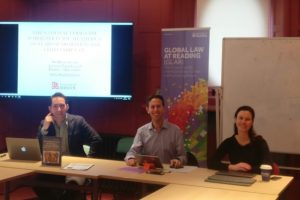 This episode of the GLAR podcast features a presentation by Dr Diego Acosta (University of Bristol), entitled ‘The Legal Construction of the National and the Foreigner in South America Over 200 Years’. Dr Acosta’s presentation was part of the Axis of Protection: Human Rights in International Law Seminar Series 2018/19 and took place at the School of Law at the University of Reading on 24 October 2018. The discussants were Dr Ana Beduschi (University of Exeter) and Dr Ruvi Ziegler (University of Reading).
This episode of the GLAR podcast features a presentation by Dr Diego Acosta (University of Bristol), entitled ‘The Legal Construction of the National and the Foreigner in South America Over 200 Years’. Dr Acosta’s presentation was part of the Axis of Protection: Human Rights in International Law Seminar Series 2018/19 and took place at the School of Law at the University of Reading on 24 October 2018. The discussants were Dr Ana Beduschi (University of Exeter) and Dr Ruvi Ziegler (University of Reading).
Listen The GLAR Podcast – Episode 30
The Bolivia v. Chile judgment
This episode of the GLAR podcast features two members of the School of Law – Dr Stephen Samuel and Dr Lawrence Hill-Cawthorne – discussing the judgment on the merits in the case, which was handed down by the International Court of Justice on 1 October 2018. The discussion took place on 19 October 2018, and followed on from a wider debate involving staff and students that took place in the School the previous week.

Listen The GLAR Podcast – Episode 29
The human rights obligations of the UN
This episode of the GLAR podcast features a presentation by Dr Noelle Quenivet (Associate Professor in International Law, University of the West of England).
Dr Quenivet’s presentation was entitled ‘The Human Rights Obligations of the United Nations: Sources and Scope of Application’. The presentation took place on 18 April 2018 and was the final seminar in GLAR’s 2017-18 . It was chaired by Dr Alison Bisset. Please note that the Q&A session that took place after the presentation is not included in this podcast.
Abstract: There is no doubt that the United Nations has on various occasions violated human rights norms. Yet, whilst most legal scholarship focuses on the responsibility of the United Nations for human rights violations few studies have ascertained the legal basis of the primary rules leading to such responsibility. This presentation fills this gap by investigating whether it is possible to bind the United Nations by way of (1) the laws of treaties to the human rights provisions enshrined in the UN Charter or in other universal or regional human rights treaties and (2) customary international human rights law. It draws the conclusion that a lex lata interpretation of the law does not oblige the UN to act in compliance with relevant treaties and that a number of legal theories to bind the UN to customary human rights law are flawed. Finally the presentation offers some recommendations as to how it might be possible to ensure that the UN is legally compelled to abide by human rights law.

Listen The GLAR Podcast – Episode 28
Ukraine & Russia in international courts & tribunals
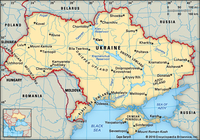 This episode of the GLAR podcast features a presentation by GLAR member Dr Lawrence Hill-Cawthorne, which was delivered as part of Reading’s internal work-in-progress seminar series on 24 January 2018. The paper was entitled ‘Ukraine and Russia in International Courts and Tribunals’. It was chaired by Dr Stephen Samuel.
This episode of the GLAR podcast features a presentation by GLAR member Dr Lawrence Hill-Cawthorne, which was delivered as part of Reading’s internal work-in-progress seminar series on 24 January 2018. The paper was entitled ‘Ukraine and Russia in International Courts and Tribunals’. It was chaired by Dr Stephen Samuel.
Dr Hill-Cawthorne kindly has agreed to share this session for wider dissemination as a GLAR podcast. Feedback would be very welcome, either at or at , especially as this is work-in-progress research.
Listen The GLAR Podcast – Episode 27
Asteroids, nuclear weapons and international law
This episode of the GLAR podcast features a presentation by your host, Professor James A. Green. The presentation took place at All Souls College, University of Oxford, on 23 November 2017. It was part of Oxford’s Public International Law Discussion Group (convened under the auspices of the British Branch of the International Law Association, University of Oxford Faculty of Law and Oxford University Press).
Professor Green’s paper was entitled ‘Planetary Defence: Asteroids, Nuclear Weapons and International Law’. It examined issues related to the question of ‘planetary defence’, in the sense of responding to an asteroid – or any other type of Near-Earth Object (NEO) – were such a body to be detected as being on a collision-course with the Earth and predicted to cause a major disaster on impact. In particular, the paper engaged with the possible use of nuclear weapons against an NEO, and the international legal implications of any such action.
The recording of the presentation already has as a podcast, published by the University of Oxford as part of its Public International Law Discussion Group podcast series. It is reproduced as a GLAR podcast with the explicit permission of the organisers of the Public International Law Discussion Group, and in conformity with rights requirements related to that original publication. GLAR is extremely grateful for this kind willingness to allow us now to publish the presentation as well.
Unfortunately the first 5 minutes or so of the presentation is missing from the recording, which represents the introduction. That introduction largely amounted to a discussion of the plot of the 1998 Bruce Willis movie Armageddon, however, so the fact that it is missing should not diminish from the content.
The paper version of this presentation still is in development, so any feedback will most gratefully be received at
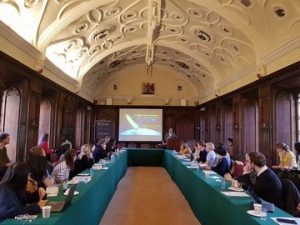
Listen The GLAR Podcast – Episode 26
International adjudication as a global public good?
 This episode of the GLAR podcast features a presentation by Dr Joshua Paine (Max Planck Institute Luxemburg).
This episode of the GLAR podcast features a presentation by Dr Joshua Paine (Max Planck Institute Luxemburg).
Dr Paine’s presentation was entitled ‘International Adjudication as a Global Public Good?’. The presentation took place on 15 November 2017 and was the first in GLAR’s 2017-18 . It was chaired by Dr Marie Aronsson-Storrier. Please note that the Q&A session that took place after the presentation is not included in this podcast.
Listen The GLAR Podcast – Episode 25
The right to insult in international law
This episode of the GLAR podcast features a presentation by Dr Philippa Webb (Dickson Poon School of Law, King’s College London and 20 Essex Street Chambers).
Dr Webb’s presentation was entitled ‘The Right to Insult in International Law’, and was based on a recently published article, which can be read in open-access here: . In addition, a short abstract for Dr Webb’s presentation can be found .
This presentation was the final seminar in GLAR’s 2016-17 . It was chaired by Professor James A. Green. Please note that, at the request of the speaker, and in the interests of open discussion, the Q&A session that took place after the presentation is not included in this podcast.

Listen The GLAR Podcast – Episode 24
Early release at the ICC
Episode 23 of the GLAR podcast features a presentation by Dr Miles Jackson (University of Oxford). Dr Jackson’s presentation was entitled ‘Early Release at the International Criminal Court’. An abstract for the presentation can be found .

This presentation was the second in GLAR’s 2016-17 . It was chaired by Dr Ruvi Ziegler.
Listen The GLAR Podcast – Episode 23
The EU at 27
Episode 22 of the GLAR podcast features a presentation by Professor Dr Christina Eckes (University of Amsterdam). Professor Eckes’ presentation was entitled ‘The EU at 27: Facilitating Democracy through Loyalty’. An abstract for the presentation can be found .

This presentation was the first in GLAR’s 2016-17 . It was chaired by Dr Alina Tryfonidou.
Listen The GLAR Podcast – Episode 22
Protection, surrogacy and defining refugees

This month’s GLAR podcast is a shared podcast with the Refugee Studies Centre at the University of Oxford. The featured presentation was recorded and edited at the University of Oxford, and GLAR is very grateful to the Centre for sharing it, so that we could also post a podcast version. Thanks in particular go to Catherine Briddick and Ruvi Ziegler for making this possible.
The podcast presentation is by Dr David Cantor (Director of the Refugee Law Initiative and Reader in International Human Rights Law at the School of Advanced Study, University of London School of Advanced Studies, University of London). Dr Cantor’s presentation was entitled Protection, Surrogacy and Defining Refugees. It was recorded at Queen Elizabeth House, University of Oxford, on Thursday 12 May 2016, and was chaired by Dr Ruvi Ziegler (University of Reading and Refugee Studies Centre, Oxford).
The event was organised by the Refugee and Migration Law Discussion Group at the University of Oxford as well as being part of the ‘Axis of Protection: Human Rights in International Law’ series, which is convened collaboratively by colleagues at Reading, Durham, Exeter and Oxford. That series provides an opportunity for scholars to engage in discussion of contemporary and challenging issues concerning the protection of human rights in international law with emphasis on human rights law, international humanitarian law, and international refugee law. This year, the series has received a grant from the Society of Legal Scholars Small Projects and Events Fund.
Listen The GLAR Podcast – Episode 21
The responsibility to protect
This podcast features a presentation by Dr Graham Melling (University of Lincoln), which took place on 20 April 2016. The presentation was entitled ‘Does R2P Matter?’, and was the final of the 2015-16 academic year.
An article version of Dr Melling’s paper will soon be out in print. His current work on the Responsibility to Protect (R2P) also feeds into a workshop taking place at Lincoln Law School on 22 April 2016, entitled .
Dr Melling has kindly made both an for his paper and his available accompany this podcast.

Listen The GLAR Podcast – Episode 20
Universal criminal jurisdiction
This podcast features a presentation by Dr Matt Garrod (University of Sussex). Dr Garrod’s paper was entitled Navigating the Debate on Universal Criminal Jurisdiction at the Sixth Committee: The Need for an Empirical Assessment? The session was part of GLAR’s Ghandhi Research Seminar series and took place on 2 March 2016 at the University of Reading School of Law. It was chaired by Professor James A. Green.
Dr Garrod has kindly provided both a detailed for his paper and his , to accompany this podcast.

Listen The GLAR Podcast – Episode 19
Mega-regional arrangements
This podcast features a presentation by Professor Mary Footer (University of Nottingham, School of Law), which she gave as part of GLAR’s Ghandhi Research Seminar Series on Wednesday, 24 February 2016.
The presentation was entitled ‘Business, Trade and Human Rights in Mega-Regional Arrangements: A Relationship to Discover’. It concerned the rise of very large regional trade and investment agreements (so-called ‘mega-regionals’) in the field of international trade. These include the Trans-Pacific Partnership (TPP), the Canada-EU Free Trade Agreement (CETA), both of which have been signed but are awaiting entry into force, and the Transatlantic Trade and Investment Partnership (TTIP), which is still under negotiation. Professor Footer’s presentation concentrated on one aspect of transnational law – the relationship of business and trade to human rights in these mega-regionals treaty instruments. She aimed to discover the extent to which such mega-regionals encompass business, trade and human rights provisions and how they might be applied as between the treaty partners.
The session was organised and chaired by Dr Anne Thies.

Listen The GLAR Podcast – Episode 18
Arbitrary deprivation of nationality
This podcast features a presentation by Professor Hélène Lambert (University of Westminster), entitled Arbitrary Deprivation of Nationality and Refugee Status.
The 1951 Convention/1967 Protocol relating to the Status of Refugees provides opportunities for stateless persons to be recognized as refugees. The causes of statelessness are manifold; these can be linked to the dissolution and separation of states and transfer of territory between states, or to technical causes through the operation of citizenship laws or administrative practices, or to discrimination and arbitrary deprivation of nationality. In this last case, discrimination is often both a cause of statelessness (e.g., the arbitrary deprivation of nationality) and an effect of statelessness on the person (e.g., the denial of human rights through discriminatory acts). Key to a proper interpretation of the Refugee Convention definition therefore is a clear understanding of how persecution relates to discriminatory treatment in the context of the right to a nationality. Professor Lambert’s presentation examined whether arbitrary deprivation of nationality, either on its own or when taken with other forms of harm, amounts to persecution for the purpose of Article 1A(2) of the Refugee Convention. This is an important question because whilst significant advances have been made in the development of protection mechanisms for stateless persons (through determination procedures), the majority of states are neither parties to the 1954 Convention relating to the Status of Stateless Persons or the 1961 Convention on the Reduction of Statelessness. Accordingly, refugee and/or complementary protection are often the only options.
Professor Lambert’s presentation took place at the School of Law at the University of Reading on Wednesday 3 February 2016. It was part of the ‘Axis of Protection: Human Rights in International Law’ series, which was inaugurated in 2013. The series provides an opportunity for scholars to engage in discussion of contemporary and challenging issues concerning the protection of human rights in international law with emphasis on human rights law, international humanitarian law, and international refugee law. This year, the series has received a grant from the Society of Legal Scholars Small Projects and Events Fund, which therefore partially funded this event.
The session was chaired by Dr Ruvi Ziegler. At the request of the speaker, this podcast just includes the presentation itself, and not the Q&A that followed.

Listen The GLAR Podcast – Episode 17
The 'Brexit' referendum franchise
This podcast features a presentation by Dr Ruvi Zielger concerning the proposed franchise for the ‘Brexit’ referendum. Dr Zielger has blogged about this matter recently, .
The presentation was part of the Law School’s ‘work-in-progress’ (WIP) series, and took place on 2 December 2015. The session was convened and chaired by Stephen Samuel.
Dr Ziegler’s PowerPoint slides for the presentation can be viewed .

Listen The GLAR Podcast – Episode 16
Security Council Resolution 2249
This podcast is a reaction to the adoption of Resolution 2249 (20 November 2015) by the United Nations Security Council, which was passed unanimously following the ISIS terrorist attacks in France, Lebanon and elsewhere in the weeks prior, as well as a consideration of the imminent vote (at the time of recording – 01/12/15) of the UK Parliament in relation to the use of force by the UK in Syria (including reference to the Prime Minister’s Memorandum to the Foreign Affairs Select Committee making the case for this). The podcast features Professor Susan Breau, Professor James A. Green, Stephen Samuel and Max Byrne.

Listen The GLAR Podcast – Episode 15
The Serdar Mohammed case
This podcast features a presentation by Dr Lawrence Hill-Cawthorne on the Serdar Mohammed case and international humanitarian law. The topic relates to aspects of Dr Hill-Cawthorne’s forthcoming book, Detention in Non-International Armed Conflict, which will be published by Oxford University Press in early 2016.
The presentation was part of the Law School’s ‘work-in-progress’ (WIP) series, and took place on 11 November 2015. The session was convened and chaired by Steve Samuel.
Dr Hill-Cawthorne’s PowerPoint slides for the presentation can be viewed .
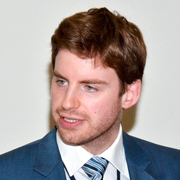
Listen The GLAR Podcast – Episode 14
The ICJ and the concept of aggression
This podcast features a presentation by Professor Antonios Tzanakopoulos (University of Oxford), entitled The International Court of Justice and the Concept of Aggression, which took place at the University of Reading, School of Law, on 7 October 2015. The presentation was chaired by Professor James A. Green, and was the first of the inaugural 2015-16 .
Professor Tzanakopoulos’ paper reviewed the contribution of the International Court of Justice in defining the concept of aggression against the background of the Kampala Amendments to the 1998 Rome Statute of the International Criminal Court. The paper argues that the ICJ, while not contributing directly to the elaboration of the concept of aggression, has indeed influenced the internal gradation of the concept of aggression through drawing an implicit parallel with the concept of armed attack. The paper then completes this picture by introducing a three-step parallel gradation of concepts: use of force-armed attack-serious breach of jus cogens and use of force-act of aggression-war and/or crime of aggression; and by discussing their potential relationship and interaction.

Listen The GLAR Podcast – Episode 13
Detention in non-international armed conflict
Episode 12 marked a year of the GLAR podcast. In this birthday edition, from August 2015, Dr Lawrence Hill-Cawthorne discusses his forthcoming book Detention in Non-International Armed Conflict, which was subsequently published by Oxford University Press in early 2016.
Dr Hill-Cawthorne is very happy to receive comments or questions about the book, or anything relating to the discussion in the podcast: .
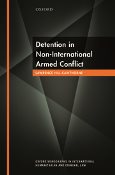
Listen The GLAR Podcast – Episode 12
Military drones
This GLAR podcast, recorded in July 2015, showcases the current research of one of the PhD candidates at the School of Law. Max Byrne (first year doctoral candidate in international law) discusses his ongoing work on the use of military drones. Max outlines his research project as a whole, and then discusses in more detail some of the key questions concerning the jus ad bellum – particularly the right of self-defence and the notion of ‘intervention by invitation’ – that he has focussed on so far. Max also muses on life as a PhD candidate at Reading.

Listen The GLAR Podcast – Episode 11
Atheism and international human rights law
This is a short podcast was recorded in June 2015. Your host, Professor James Green, takes the opportunity to use the podcast to air a few preliminary thoughts that he has about the relationship between atheism (and other non-theistic belief systems) and international human rights law. This is just some food for thought on the very early stages of a potential future research project. Please do get in touch to provide feedback on these ideas, as they are very much in development. This tentative research project is linked to the Law School’s new final-year LLB module, launching in the Autumn Term of 2015, on issues of Law and Religion.

Listen The GLAR Podcast – Episode 10
Cyber warfare
This episode of the GLAR podcast features a role reversal, as Dr Lawrence Hill-Cawthorne interviews the usual host of the GLAR podcast, Professor James A. Green, about his recently published edited book, (2015, Routledge). Professor Green discusses the purpose and underpinning conception of the book, the various contributions to it and his own chapter in it on the jus ad bellum and cyber warfare.
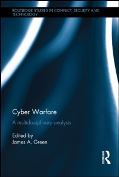
Listen The GLAR Podcast – Episode 9
The Chilcot Inquiry
Episode 8 of the GLAR Podcast features a presentation by Dr Charlotte Peevers (University of Technology, Sydney, Australia), entitled ‘The Chilcot Inquiry: Unfurling the Inner Life of International Law’, which took place on Wednesday, 22 April 2015 at the School of Law, University of Reading. Dr Peevers’ paper examines the oral and documentary testimony presented to the Chilcot Inquiry into the Iraq War. She argues that much can be learnt about the ‘inner life’ of international law: the way international law is interpreted, argued over, and deployed behind the scenes amongst government actors and officials. This ‘inner life’ allows us to reconsider the role of international law in domestic and global politics to better understand the limits of doctrine and the politics of justifying force. In her presentation, Dr Peevers argues that this inner life demonstrates that we need to move beyond the paradigm of ‘compliance’ to consider the extent to which international law not only constrains but also facilitates the use of force.
During the presentation, Dr Peevers played a video clip of oral evidence presented by Sir Michael Wood at the Chilcot Inquiry on Tuesday, 26 January 2010. This has not been included in the podcast recording, but the relevant video clip can be found on the Inquiry’s website, (the clip played by Dr Peevers was extracted from 55 minutes to 64 minutes of this video). A written transcript of Sir Michael’s oral evidence is also available at the same page of the Inquiry’s website.
Another section of the podcast audio file has been slightly redacted at the request of one of the participants.

Listen The GLAR Podcast – Episode 8
Blackade and WWI
Episode 7 of the GLAR Podcast features a presentation by Professor Christopher Waters (University of Windsor, Canada), entitled ‘Blockade and the Legal History of WWI Reconsidered’ which was recorded on 14 January 2015 at the University of Reading. The session was introduced and Chaired by The paper was introduced by Dr James A. Green (University of Reading).
Drawing on recent legal historiography as well as original research, in this presentation Professor Waters argues – with a focus on the maritime blockade of Germany – that law was at the heart of how Britain, its allies and neutral powers navigated the First World War.
This paper on blockade during the First World War is part of a larger project by Christopher Waters and Robert Nelson examining the legal history of civilian targeting during wartime. The interdisciplinary project – Waters is an international lawyer and Nelson a historian at the University of Windsor – begins with the Thirty Years War and goes through to the drones and cyberwar of today. One paper from the project, looking at the bombing of civilians from the air during the Second World War, has already been published: Christopher P. M. Waters and Robert Nelson, ‘The Allied Bombing of German Cities During the Second World War from a Canadian Perspective’ (2012) 14 Journal of the History of International Law 87-122, and is available .
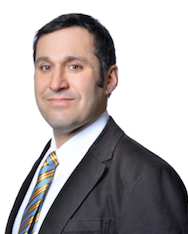
Listen The GLAR Podcast – Episode 7
Am I Charlie?
This episode features a panel discussion entitled ‘Am I Charlie?’, featuring comments from four members of University of Reading staff: Professor Susan Breau (Head of School of Law), Dr Christina Hellmich (Department Politics and International Relations), Dr Brian Feltham (Department Politics and International Relations) and Dr Ruvi Ziegler (School of Law). The panel considers issues relating to freedom of speech in the wake of the Charlie Hebdo attacks that occurred in Paris on 7 January 2015. The event took place at the University of Reading on Wednesday 21 January 2015 (exactly two weeks after the attacks occurred). The panel was chaired and introduced by Professor Dominik Zaum (Head of School of Politics, Economics and International Relations). To ensure a free and frank discussion and to limit any concerns about individual consent, only the comments made by the four speakers were recorded for this podcast episode: the subsequent discussion in the room is not featured here.

Listen The GLAR Podcast – Episode 6
Honouring Professor Sandy Ghandhi
To mark the occassion of the publication of (2015, Brill Nijhoff), which was co-edited by Dr James A. Green (University of Reading) and Professor Christopher P.M Waters (University of Windsor), this episode focuses on Professor Sandy Ghandhi’s career in academia and his time working at the Law School at the University of Reading (1978-2013).
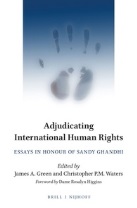
 This chat between Sandy, James and Chris was recorded on 14 January 2015 – the day that Sandy was formally presented with a copy of the festschrift honouring his work.
This chat between Sandy, James and Chris was recorded on 14 January 2015 – the day that Sandy was formally presented with a copy of the festschrift honouring his work.
Listen The GLAR Podcast – Episode 5
Discourse on the use of force in the 19th century
This episode features a roundtable discussion on the forthcoming article by Agatha Verdebout (Université Libre de Bruxelles, Belgium) entitled “The Contemporary Discourse on the Use of Force in the Nineteenth Century: A Diachronic and Critical Analysis”. The article will appear in Volume 1, Issue 2 of the . The roundtable took place at the School of Law on Wednesday 10 December 2014. In the article, Verdebout critiques the commonly repeated understanding – which many of us in the field tend to accept and continue to teach – that the use of force was essentially unregulated by international law prior to the 20th century. The paper was introduced by Dr James A. Green (University of Reading).

Listen The GLAR Podcast – Episode 4
Superheroes and international law!
In this short (and really rather geeky) podcast from Decemeber 2014, your host, Dr James A. Green (University of Reading), discusses the big budget 2012 superhero movie Marvel’s Avengers Assemble through the prism of international law. He asks what that movie – and comics and superhero films generally – tells us about cultural perceptions of the United Nations and the international legal system. A published version of this commentary appeared as ‘Hero Worship?’ (2012) 7533 New Law Journal 1284-1285. Since the publication of that piece, it is arguable that the positive multilateral approach to international affairs displayed in the Avengers movie has been diluted in subsequent films: what might that mean for Avengers 2: Age of Ultron?

Listen The GLAR Podcast – Episode 3
Dworkin and international law
This episode features a roundtable discussion on Ronald Dworkin’s posthumous publication ‘A New Philosophy for International Law’ (2013) 41(1) Philosophy and Public Affairs 2-30, which took place at the School of Law on Wednesday 29 October 2014. In the article Dworkin set out his views on a number of age-old problems faced by international lawyers – Is international law really law? What is its basis of obligation? etc. The roundtable event was organised and introduced by Dr Dimitrios Kyritsis (University of Reading) and Dr Lawrence Hill-Cawthorne (University of Reading) and involved an informal discussion of the article between various staff and students at the University.

Listen The GLAR Podcast – Episode 2
Scottish independence referendum
Dr Ruvi Ziegler (University of Reading) discusses the upcoming Scottish Independence Referendum on the 18th September 2014, and sets it in a wider context of a project he has been working on in relation to various independence referendums (or initiatives for such referendums) around the world. That project has been published as a European University Institute, Robert Schuman Centre for Advanced Studies working paper, entitled ‘Independence Referendums: Who Should Vote and Who Should be Offered Citizenship?’. The working paper is freely downloadable , and was co-edited by Ruvi, along with Professors Jo Shaw (Edinburgh Law School) and Rainer Bauböck (European University Institute).

Listen The GLAR Podcast – Episode 1
